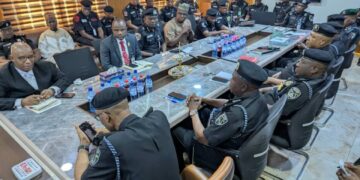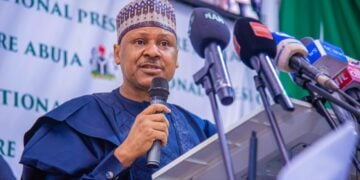Federal and state governments have been asked to implement reforms to deepen citizen engagement, strengthen ethical governance and promote responsive leadership for Nigeria’s sustainable development.
The call was made in a communique issued after the 32nd annual development forum of the Lift Above Poverty Organisation (LAPO) held in Abuja, where the participants affirmed that citizen engagement remains the lifeblood of democracy and the cornerstone of national progress.
They stressed that participation must evolve from mere consultation to active collaboration in governance, co-creation of solutions and sustained accountability.
The event, chaired by Senator Ita Solomon Enang, brought together former and serving lawmakers, finance experts and development stakeholders.
The forum emphasised that responsive governance must be people-centered, ethical, transparent and inclusive, led by leaders who listen, uphold the rule of law and prioritise collective welfare over personal interests.
Participants called for stronger legal frameworks to institutionalise citizen participation through participatory budgeting, open contracting, town hall meetings, and community dialogues.
They also underscored the need for civic education to empower citizens to engage government constructively, while urging that accountability demands be made with decorum and accuracy.
The forum highlighted the role of technology in promoting participatory governance, calling on governments to adopt open data systems and digital feedback platforms that foster transparency and trust.
Corruption, weak institutions and poor accountability were identified as key threats to development, and calls were made for stronger anti-corruption reforms and effective legislative oversight.
The forum also expressed concern over elite apathy in politics, warning that the withdrawal of educated citizens perpetuates mediocrity in leadership.
They urged professionals and civil society actors to actively engage in governance, noting that Nigeria’s growth depends on government, civil society, and the private sector partnerships.
LAPO was commended for demonstrating people-centered, inclusive development that integrates financial inclusion, health, and gender equity.
LAPO’s president, Faith Osazuwa-Ojo, reaffirmed the organisation’s commitment to tackling poverty through an approach that combines access to finance, healthcare and social empowerment.
According to her, between January 2024 and September 2025, LAPO Microfinance Bank disbursed over ₦420 billion in loans to 718,363 clients, while ₦61 billion supported 301,944 beneficiaries in agriculture, that in the same period, 320,560 individuals received free health services, including screenings for blood pressure, diabetes, malaria, cholesterol and cancer.
Osazuwa-Ojo said the forum’s theme, Citizen Engagement and Responsive Governance for National Development, reflects the urgent need for participatory governance to address poverty and inequality.
The keynote speakers Dr Otive Igbuzor and Rotary District 9127 governor, Dr Princess Joy Nky Okoro, in their lead discussions, emphasised the need for strengthening citizen participation in governance.




